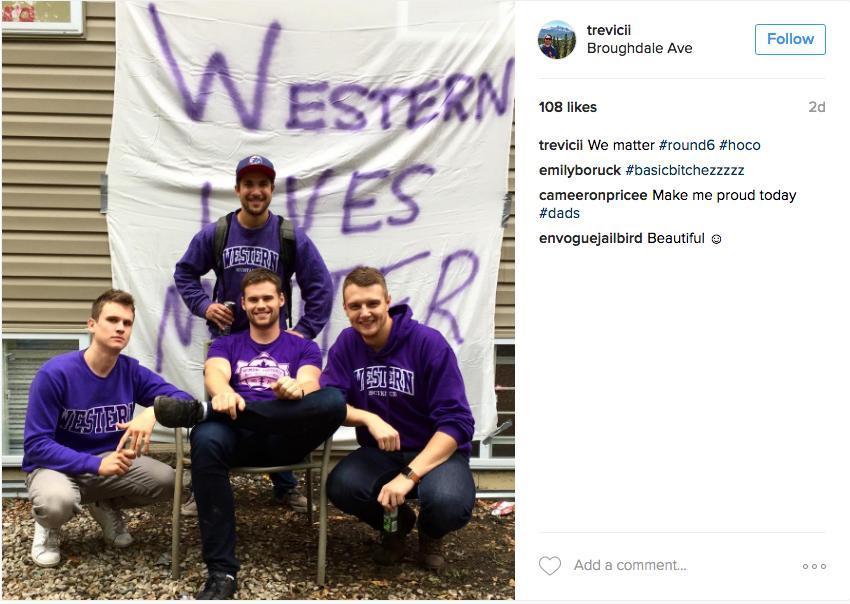rabble.ca and the Canadian Federation of Students (CFS) are teaming up to find Canada’s next progressive student journalists. Generously funded by the CFS, Campus Notes will be running articles on Canada’s critical post-secondary education issues. Have an idea? Pitch it here.
Now over a month into the new school year, proponents of campus safe spaces have taken a beating. Harsh critiques of such spaces — that is, environments intentionally opened for those traditionally left on the margins, such as LGBTQ* or racialized students — seemed to be made before anyone tapped the first orientation week keg.
Take the University of Chicago. The school made headlines earlier this month with a letter explaining to incoming students that safe spaces were “not condoned.” This was followed by newly minted British Prime Minister Theresa May denouncing the on-campus trend as harmful to the country’s economic and social development.
More recently and locally, University of Toronto professor Jordan Peterson published an hour-long video lecture railing against new anti-racism and anti-bias training being made mandatory for instructors — training that, for example, encourages professors to create a safe space by ask students about their preferred gender pronoun.
One of Peterson’s main objections to the training is that he believes it is political correctness gone rouge, beyond reality. He explains there is a “lack of evidence that U of T is a racist university” since it is a “multi-racial and multi-ethnic university and community.”
Some would say this U of T professor is right. Doesn’t our progressive, hockey-loving slant make Canadian campuses different than our more intolerant global counterparts?
If you ask the institutions themselves, it certainly sounds that way. When questioned for this piece, universities across Canada were quick to point to policies promoting inclusivity and diversity. The University of British Columbia’s Positive Space Campaign, for instance, promises an “inclusive, respectful dialogue” for queer and non-binary students, while McGill University in Quebec is “committed to fostering an environment of respect in our classrooms, across our campuses and in residences.”
Look no further than a school’s recruitment, orientation or fundraising materials to see further vows of a rewarding, enriching experience for all students. The racially diverse cast of men and women printed on glossy pages of post-sec fair booklets certainly indicate as such.
However, the problem is that these often aren’t reflected in the behavior of faculty or administration.
For example, London’s Western University had a bumpy end to their Frosh week when a slogan promoting sexual assault was featured on a near-campus student home. Despite the university’s continued campaigns about consent, Western’s housing mediation coordinator dismissed concerns of the all-male household with, “I get it: the message is really bad, but students do dumb things.” Similarly, Western spent much of last year attempting to distance itself from its racist and anti-black reputation, but its Homecoming last week featured a “Western Lives Matter” banner hung up on another near-campus student home.
For Rowa Mohamed, a fifth-year student of Western’s health science program, this is more than just a troubling pattern — it’s a failure of the university to make real change.
“I went to Western for five years, I still work on campus, and I’m telling you Black and other people of colour at Western do not have that same ‘best student experience,'” she explained, referencing the school’s often-touted recruitment slogan. As former political affairs coordinator for Western’s Black Student Association, Mohamed explained that it’s easy for a school to claim it is “diverse and inclusive,” but that doesn’t mean it actually has an interest in being anti-racist, dealing with prejudice or creating safe spaces. “[These claims] are a very easy way for them to avoid and diffuse responsibility,” she said.
This incongruity between what a university says and does seems odd at first. If senior administration is willing to promote enrollment for female, queer or non-white students, it seems natural that its staff would embrace any opportunity to facilitate a safer, more inclusive dialogue in the classroom.
But yielding to even the smallest, simplest act to create a safe space — such as offering a course trigger warning or calling a student by their preferred gender pronoun — is, as U of T’s Peterson plainly puts it, an admission that the space is currently not safe. That can be hard for even the most academic minds to accept, especially when the space is and has always been safe for them.
Earlier this year The Globe and Mail highlighted how Canadian universities failed to meet their own targets for the hiring of women, visible minorities, people with disabilities and Indigenous people. Instructors who are themselves members of one or multiple of these communities understand that the classroom, especially in higher education, has historically been and continues to be a place of exclusion, judgment and fear. Safe spaces, then, are an attempt to chip away those barriers and help students who usually wouldn’t participate in post-secondary and beyond navigate difficult subjects and systems.
That’s not to say a professor who is heterosexual, white and male is unable to foster comfort and lead deeper discussions about the lived-experiences of his students. It’s just easier for them to dismiss that process as being “over-inclusive,” as Peterson puts it.
And this doesn’t seem to be changing a lot. As the Globe article (and any marginalized student) will point out, we’re still not reaching a degree of faculty and staff diversity reflective of the Canadian population.
Female, queer, racialized and disabled students continue to feel exposed in both undergraduate and graduate classes, preventing them from becoming part of faculty or administration. These students won’t advance through academia if they don’t feel able to speak up, ask questions and learn — in other words, if they don’t feel safe.
Kevin Hurren is a Toronto writer working in the Premier’s office. A recent graduate from Western University, Kevin’s years of experience with campus journalism and student politics inform his approach to current issues. Follow or message him on Twitter: @KevinHurren.
Image: Instagram



